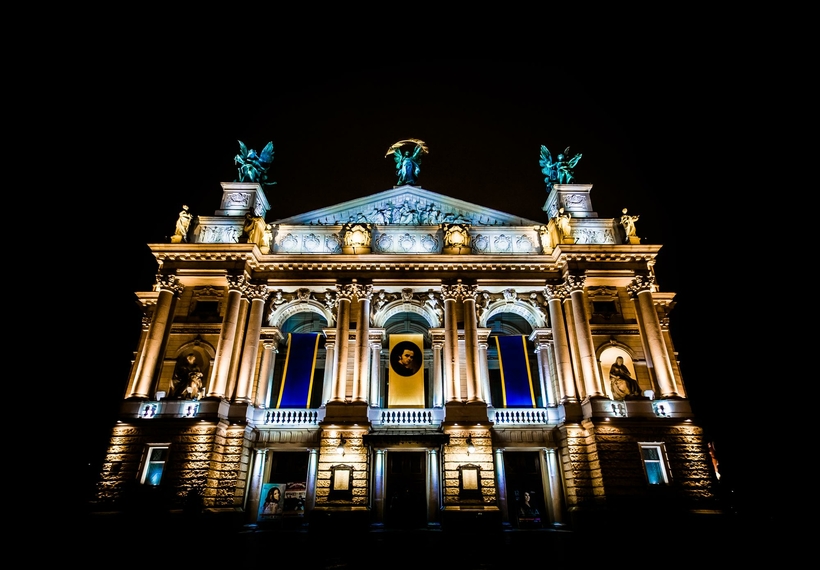A century ago, Stalin was bearing down hard on Ukraine, nationalizing industry, collectivizing agriculture, herding protesters off to concentration camps. Yet under a cultural policy called korenizatsiya (going back to the roots), the composer Borys Lyatoshynsky and his librettist Jacob Mamontov worked at their nationalistic music drama Golden Crown without interference. The pushback came after the Odessa premiere in 1930, when the saga of medieval clan warfare in the Carpathian Mountains was denounced—kiss of death—as a decadent “formalist” effort. Today, it is undiscovered territory even in the homeland.
At least such was the case until October 25, World Opera Day, when the European streaming platform OperaVision premiered a new video introducing Lyatoshynsky’s magnum opus to a worldwide public. Organized by Ella Marchment, director of opera at Shenandoah University in Winchester, Virginia, the 45-minute package presents a half dozen excerpts from the score. Contributing an episode each are the renowned young-artists programs of the Finnish National Opera; the Polish National Opera; the San Francisco Opera; the Royal College of Music, London; and the Teatro dell’Opera di Roma. The sixth episode comes from the stage of Ukraine’s Lviv Opera. Some segments deliver the material recital-style, with or without scores on music stands. Others, staged on a shoestring, create a hint of theater by means of lighting, timeless or contemporary costumes, and such elementary props as a chair or a cot or a stick of incense.

The drama’s star-crossed lovers are the tenor Maxim, a proud mountain villager, and the soprano Myroslava, daughter of the bogus boyar Tugar Vovk, who fancies himself Maxim’s better—never mind that Maxim, who swings a mean battle axe, has won Myroslava’s heart by planting the blade in the skull of a charging bear. When Mongol hordes sweep in from the East, Tugar sells out his countrymen. Violence escalates and Maxim perishes, though his people—the good guys—prevail.
Lyatoshynsky’s vocal writing is strenuous stuff, calling for intrepid singers with heroic projection. Myroslava comes at us in three youthful avatars who differ considerably in brightness of timbre but are alike in their intensity. Four artists share the high-flying part of Maxim, all of them remarkable for confident, unforced attack.The treacherous Tugar is heard in the voices of three solid bass-baritones. So is his counterpart, Maxim’s salt-of-the-earth father, Zakhar, whose two solo scenes are the glory of the program. In the first, Zakhar contemplates the majesty of unspoiled Nature before flooding a valley to rout the Mongol invaders; representing the San Francisco contingent, Stefan Egerstrom rises to the moment with grave wonder. In the second, Taras Berezhanskyi’s Zakhar and the male choristers of the Lviv Opera welcome Myroslava into their midst with ceremonial solemnity.
To Western ears, the composer’s Slavic style seems very much of a piece with Mussorgsky’s Boris Godunov or Khovanshchina, Russian masterpieces untouched by totalitarian aggression, whether Putin’s in our time or Stalin’s back in the day.
Golden Crown is available on OperaVision’s Youtube channel. The project supports Ukrainian opera professionals displaced by the war
Matthew Gurewitsch writes about opera and classical music for AIR MAIL. He lives in Hawaii

